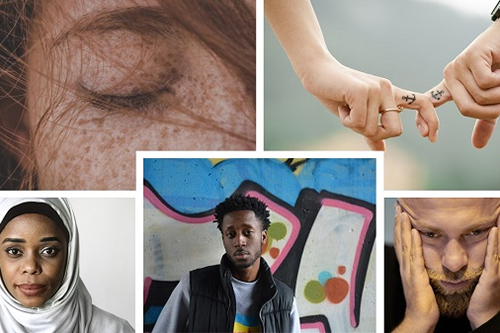Approximately one third of young people in the UK have experienced IPVA by the age of 21.
The Medical Research Council-funded research, summarised in a new policy report published by PolicyBristol today [1 February], sought to understand the risk factors which make young people more vulnerable to IPVA. The study also explored the types and frequency of abuse they experience, and their experiences of getting help and support.
The team conducted in-depth interviews with 19 young people aged 18-25 and analysed longitudinal Children of the 90s survey data (also known as the Avon Longitudinal Study of Parents and Children) on around 3,000 young people aged 18-21. They found that young people were often vulnerable long before the abusive intimate relationship(s) had begun. They uncovered a 'loneliness loop' which created a pathway from early childhood trauma to IPVA in young adulthood.
Young people described experiences of being silenced, either by not being believed about adverse childhood experiences, such as domestic or sexual violence and abuse, bullying or other forms of abuse, or by being negatively labelled as 'bad' when they acted out from those experiences. The resulting isolation and loneliness made them vulnerable to further abuse, including IPVA, which led to further isolation and loneliness making it more difficult to break out of the loop and get help.
Psychological abuse was a feature in all abusive relationships, including coercive control (intimidating, manipulative and controlling behaviour). Young women experienced more sexual abuse than young men, and more often all three types of abuse (psychological, physical, sexual).
To help others, they said they wanted clearer information on identifying abusive relationships from a younger age in schools and better access and signposting to specialist services.
The interviews with the young people also revealed that:
- they benefited most from equal power dynamics in relationships with professionals – especially support workers - where they were supported to make their own decisions.
- all of those who had contact with support workers (half of those interviewed) had very positive accounts of their experiences, highlighting the care and quality of the support and equality of the relationship with their support worker.
Key recommendations include:
- All schools should teach young people to recognise psychologically abusive and controlling aspects of relationships.
- GP, maternity and counselling services are uniquely placed to effectively respond to the needs of survivors of interpersonal violence and abuse.
- Staff working or in contact with young people, including those in schools, should be appropriately trained in trauma-informed care.
Dr Maria Barnes, Research Fellow at the Centre for Academic Primary Care, University of Bristol, who interviewed the young people, said: "Professionals offering support to young people need appropriate trauma-informed training. This needs to include how to recognise abuse, especially controlling behaviours. They also need to know about appropriate referral pathways to ensure that young people get the right information and support."
Dr Annie Herbert, Sir Henry Wellcome Research Fellow at the MRC Integrative Epidemiology Unit, Bristol Medical School, who led the data analysis, added: "Schools are uniquely placed to teach young people how to identify what consists of either healthy or abusive relationships. Our interviews suggested that information in schools needs to be more inclusive of different sexual orientations, ethnicities, and disabilities."
Sarah O’Leary, CEO of Next Link Domestic Abuse Service, commented: "Fostering respectful and trusted relationships with children and young people, that validates their experiences and provides them with knowledge and resources to understand healthy relationships, is key in the prevention of further abuse and harm.
"Collaborations between education, Children's and Young People's services and local specialist domestic and sexual abuse organisations are needed. The Next Link Home Office funded pilot 'Children Affected By Domestic Abuse' training in Bristol schools is an example. Collaborations like this can create essential early intervention referral routes, education around healthy relationships, and support to staff so that children and young people can get the specialist help and support they need to flourish."
Report
'Better support is needed for young people vulnerable to abuse in intimate relationships' by Maria Barnes, Annie Herbert, Gene Feder, Eszter Szilassy, Abigail Fraser, Laura Howe, Jon Heron, Christine Barter in PolicyBristol
Papers
'Young people and intimate partner violence: experiences of institutional support and services in England' by Maria Barnes, Christine Barter, Annie Herbert, Jon Heron, Gene Feder and Eszter Szilassy in Journal of Family Violence
'Exploring the causal role of intimate partner violence and abuse on depressive symptoms in young adults: a population-based cohort study' by Annie Herbert, Jon Heron, Maria Barnes, Christine Barter, Gene Feder, Khadija Meghrawi, Eszter Szilassy, Abigail Fraser, Laura D. Howe in BMC Medicine [open access]
'Being silenced, loneliness and being heard: understanding pathways to intimate partner violence & abuse in young adults. a mixed-methods study' by Barnes, M., Szilassy, E., Herbert, A. et al. BMC Public Health [open access]
